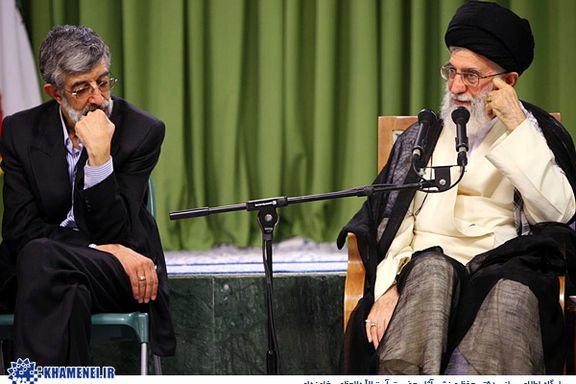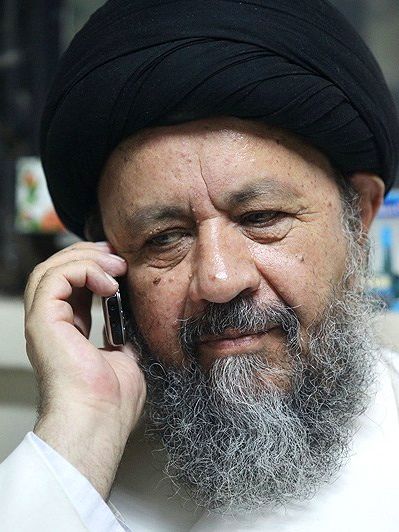Iran's Acting Education Minister Threatens Students, Professors

Iran's acting education minister Reza-Morad Sahraei, a life-long Basij operator, has threatened protesting university students and professors with expulsion.

Iran's acting education minister Reza-Morad Sahraei, a life-long Basij operator, has threatened protesting university students and professors with expulsion.
In an audio recording of Sahraei’s meeting at Farhangian University, a public teacher training university where he currently serves as rector, Sharaei says this university is more important than the Revolutionary Guard's universities in Iran and everyone who speaks out against the regime will be identified and expelled.
He said "the red line is the existence of the regime," and anyone who crosses it would not have a place in the university. Anyone who took part in the recent protests, even minimally, will be identified in the near future and will be expelled, he said in the leaked audio. “Professors who would not move in the framework set by the regime will not have a place in this university,” he said, adding, “Record this and tell everyone about it.”
"The regime wants to train forces for itself in Farhangian University, and when someone does not accept the system, they do not belong here," he claimed.
The interim minister has not yet been approved in his post, but his appointment seems in line with President Ebrahim Raisi’s policy of further crackdown on dissident students.
Sahrai, who is already under aspersions about his former position as a tenured professor at the Allameh Tabataba'i University, faces numerous controversies about his academic credentials. He is one of those people who were crowned as professors at Iran’s high-ranking universities thanks to links to the regime’s inner circles.

He is closely connected to former parliament speaker Gholam-Ali Haddad-Adel and served as his right-hand man at the Saadi Foundation, a “cultural center” that is tasked with promoting Persian language among non-Persian speakers. Sahraei is the man who was influential in assigning many people as the Islamic Republic’s cultural attachés in several embassies under the guise of Persian teachers.
Although Sahraei’s resume may portray him as a true academic, he is really a regime agent in camouflage of a university professor. He reportedly holds a doctorate in linguistics from Allameh Tabatabai University and is a full professor there, but several graduate students who were forced to work on their theses with him as their advisor or supervisor told Iran International that he never helped them in in their academic endeavors and only showed up at the defense presentation sessions to get the credit.

Sahraei was also the man in charge of implementing policies of Sadreddin Shariati, the controversial head of Allameh Tabatabai University who embarked on strict sex segregation at the university in early 2010s. According to information obtained by Iran International, Sahraei is also mired in numerous cases of plagiarism, including his article about “morphological paradoxes.”
Serving as a loyal regime operator for many years, Sahraei is appointed as the new education minister to carry out harsher crackdown on students who have revolted against the Islamic Republic or voiced support for the popular uprising ignited in September 2022 following the death in custody of 22-year-old Mahsa Amini.
Earlier in the month, the ministry of higher education said institutions under its coverage will no longer offer educational and other services to students who do not abide by hijab rules. “All universities and higher education institutions under the coverage of the ministry of sciences, research and technology will not be obliged to offer educational, welfare and other services to the few students who do not abide by the laws and regulations of the universities in this regard,” the ministry said in a statement April 3.